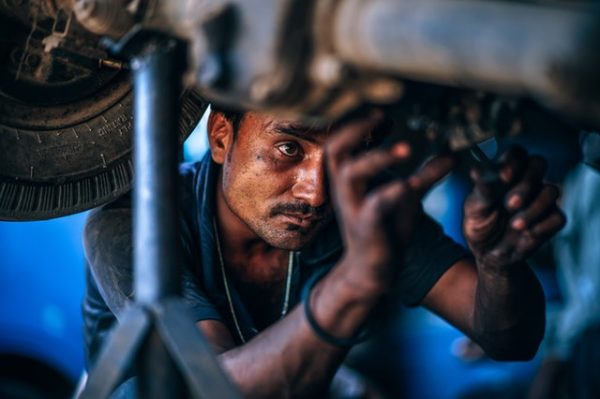
We’ve all been guilty of it: The fuel light on our cars goes off, complete with a loud dinging noise, and we just keep driving. We promise we’ll take care of it later today, or tomorrow. Definitely by the weekend. If we’ve had our car for a long time, we know exactly how much gas we have left when the fuel light goes off, and just how far we can stretch it before we absolutely must stop at a gas station or risk being stranded on the side of the road. It becomes a game we’re determined to win.
Flirting with trouble in relation to our gas tank is one thing. If you run out of gas, you’ll have to call someone to bring you gas, which is inconvenient and annoying, but it shouldn’t cause lasting damage as long as you don’t make it a habit (and generally speaking, being stranded once is enough to make sure that it doesn’t become a habit). There are some other, more serious, warning signs from our car that we ignore at our own peril.
The brakes
As a teenager, you may have delighted in yelling, “Brake check!” right before slamming on the brakes and startling your passengers. It probably won’t surprise you to learn that this is not, in fact, the best way to test your brakes. It is instead a good way to test your friends’ patience. When it comes to your brakes, response times matters a lot. Good brakes will respond pretty much as soon as your foot presses down on the pedal. Generally speaking, you’re supposed to apply the brakes slowly when you’re coming to a stop. But you don’t always have the luxury of doing that. Quick response time is critical in case the person in front of you comes to a sudden stop (you should also maintain a safe following distance of at least a couple of seconds, by the way). And if you’re driving through a residential neighborhood and a ball comes bouncing into the street, both you and your brakes should react as soon as possible, since there’s a good chance is going to be trailing right behind the ball, and children don’t always realize what a bad idea it is to run out into the middle of a street.
If your brakes are squealing or grinding when you use them, that’s not a great sign. You know your car well, and if something feels off about your brakes, it’s time to get them checked out at a reputable brake shop.
Your tire pressure
Newer cars will alert the driver to low tire pressure. They’ll even tell the driver which tire is getting low. Those of us without newer cars should keep a tire gauge in the car console and check the tire pressure periodically. If you spend enough time looking at tires, you’ll start to be able to tell when a tire’s pressure looks off. Cold weather can cause your tire’s pressure to drop, so it’s especially important that you stay on top of things in the wintertime. You should also get your tires rotated regularly, and if a tire is running out of tread, get it replaced. The last thing you want is a tire blowout while you’re going 70 miles per hour down the freeway.
Leave a Reply